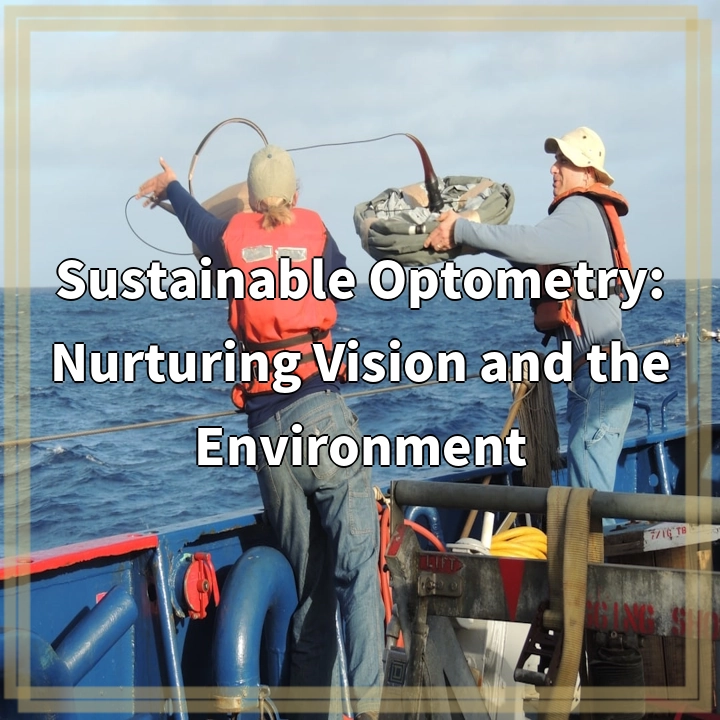
What is Sustainable Optometry?
Sustainable optometry is an approach to eye care that focuses on minimizing the environmental impact of the optometry profession while maximizing positive social and economic outcomes. It involves adopting sustainable practices and implementing environmentally-friendly solutions in all aspects of optometric care, from patient management to clinic operations.
Real-World Problems Associated with Sustainable Optometry
Sustainable optometry faces several challenges and real-world problems that need to be addressed for successful implementation and adoption:
1. Waste Management
The optometry profession generates a significant amount of waste, including single-use contact lenses, packaging, and disposable equipment. Proper waste management is crucial to minimize the environmental impact of this waste and prevent it from ending up in landfills or polluting water bodies.
2. Energy Consumption
Optometry clinics require a substantial amount of energy to operate, from lighting and air conditioning to powered diagnostic equipment. Energy-efficient practices, such as using LED lighting, implementing smart thermostats, and investing in energy-saving equipment, can help reduce energy consumption and lower carbon emissions.
3. Chemical Usage
Optometric care involves the use of various chemicals, such as cleaning solutions, disinfectants, and diagnostic dyes. These chemicals can have negative impacts on the environment if not properly handled and disposed of. Implementing safer alternatives, recycling programs, and proper chemical disposal protocols can mitigate these concerns.
4. Sustainable Eyewear Manufacturing
Eyewear production often involves non-renewable resources and unethical labor practices. The optometry industry can work towards supporting sustainable eyewear manufacturing processes by promoting eco-friendly materials, ensuring fair labor practices, and adopting a circular economy approach.
5. Education and Awareness
One of the primary challenges of sustainable optometry is a lack of awareness and education among optometrists, optometry students, and patients. Building capacity through educational programs, workshops, and awareness campaigns is crucial to create a mindset shift towards sustainable practices and foster a culture of environmental responsibility within the optometry community.
Addressing these real-world problems requires collaboration between optometrists, industry stakeholders, and policymakers. By embracing sustainable optometry practices, we can not only nurture vision but also contribute to the preservation of the environment for future generations.

Solutions for Sustainable Optometry
Addressing the real-world problems associated with sustainable optometry requires implementing practical solutions. Here are some potential strategies:
1. Waste Management
Optometry clinics can implement recycling programs for materials such as contact lenses, packaging, and disposable equipment. This can help divert waste from landfills and promote responsible waste management.
2. Energy Efficiency
Optometry clinics should invest in energy-efficient lighting systems, utilize smart thermostats, and upgrade to energy-efficient equipment. This can reduce energy consumption and lower the carbon footprint of the clinic.
3. Chemical Reduction and Proper Disposal
Optometrists should explore alternatives to traditional cleaning solutions and disinfectants that are safer for both patients and the environment. Implementing proper protocols for chemical storage and disposal is also crucial.
4. Sustainable Eyewear Choices
Optometrists can promote sustainable eyewear options to patients, such as frames made from recycled materials or those produced using renewable energy sources. Supporting brands that prioritize ethical manufacturing processes and fair labor practices is vital.
5. Education and Awareness
Offering continuing education programs and workshops focused on sustainable optometry can raise awareness among optometrists and students. Additionally, clinics can educate patients about the value of sustainable practices and the positive impact their choices can make.
By implementing these solutions, the optometry profession can make significant strides towards promoting sustainability and minimizing its environmental impact. Embracing sustainable optometry practices not only benefits the planet but also contributes to the overall well-being of patients and communities.















